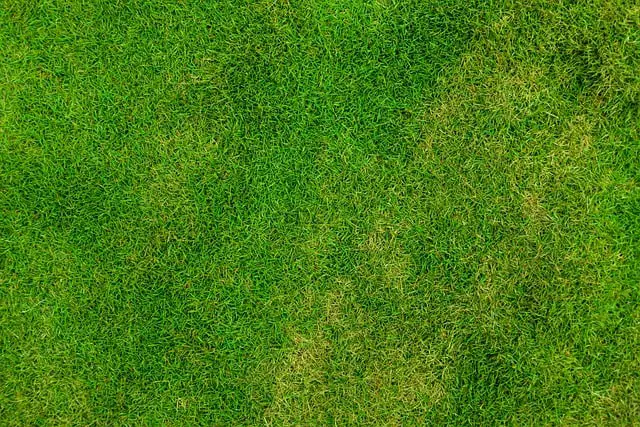Wondering if dish soap will do more harm than good to your lawn? Whether you’ve had an accidental spill or are looking to use it as an herbicide.
There are really only two reasons you’d be wondering if dish soap could kill your grass:
On the one hand, you’ve had an accidental spill and a bottle of dish soap has gotten into your lawn and you’re worried it’s going to destroy it. On the other hand, you heard that dish soap could be used as a wonderfully effective herbicide and weed killer and you might have gone a little heavy-handed.
Either way, you’re likely looking for the answer to the “does dish soap kill grass” question – and we can tell you pretty definitively that it will.
Does Dish Soap Kill Grass?
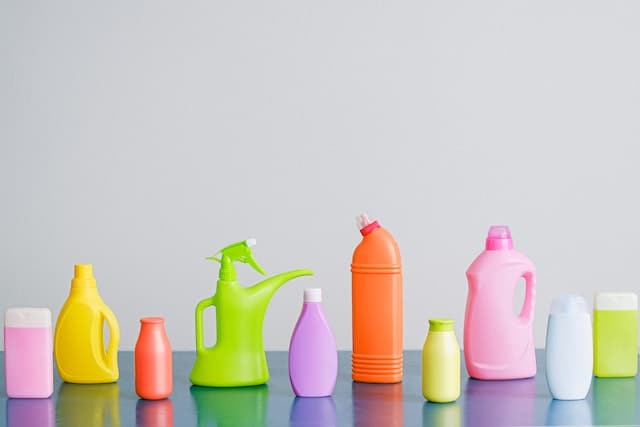
Yes, dish soap has the ability to completely decimate your grass because of the chemical composition of commercial dish soap formulas.
These products are designed primarily to cut and remove grease (as well as caked on foodstuff) from your dishes. And the only way that’s possible is by using some pretty potent detergents and synthetic chemical concoctions that are going to destroy natural fats and natural oils.
The last thing your plants want to come in contact with are these soapy detergents, detergents that are going to choke the life from them and almost “burn them” faster than you would have thought possible.
The chemicals in dish soaps will dry out all of the oil based tissues of your lawn, kind of acting like a desiccant. Worse, the chemicals linger a lot longer than most people expect – keeping your grass dry and brittle.
Combine that with regular sunlight exposure and halfway warm temperatures and it doesn’t take very long for your once beautifully green lawn to turn into a patchwork quilt of brown spots.
It’s a good idea to do everything you can to keep dish soap off of your lawn. You’ll end up with a real mess on your hands that can be more than a little bit tricky to repair.
Can You Use Dish Soap to Kill Weeds?
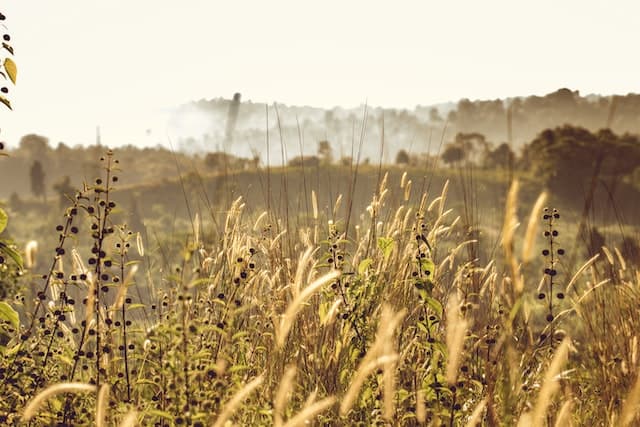
A big part of why so many people consider using dish soap on their lawns is because they hear that it can be a great household fix for weeds, moss, and other invasive plants they want to remove from there lawn once and for all.
Does dish soap kill grass weeds, though?
We have to admit that dish soap is a powerfully effective weed killer. There’s no argument there – this soap will do a number on even the toughest and most resilient weeds, that’s for sure.
The trouble, though, is that there’s no real way to control or corral the widespread effects of dish soap once you start to add it to your lawn.
Sure, you might be able to “spot treat” certain areas with lots of weeds and not have too many problems to deal with. But it doesn’t take all that heavy a hand with the dish soap to cause that detergent to move well beyond the weed root structure and start infecting your lawn, too.
And if it rains shortly after you’ve added dish soap to your lawn?
Well, that’s sort of a worst-case scenario situation. The rain will cause that detergent to spread far beyond the spots you’ve treated strategically, burning patches of grass all over the place.
If you’re going to be using dish soap as a weedkiller you need to be sure that the weather forecast is crystal clear for at least a couple of days, that there’s going to be some high temperatures to help this detergent work quickly, and that you apply very small amounts of dish soap directly to the weeds you’re looking to get rid of.
What About as a Pest and Insect Killer?
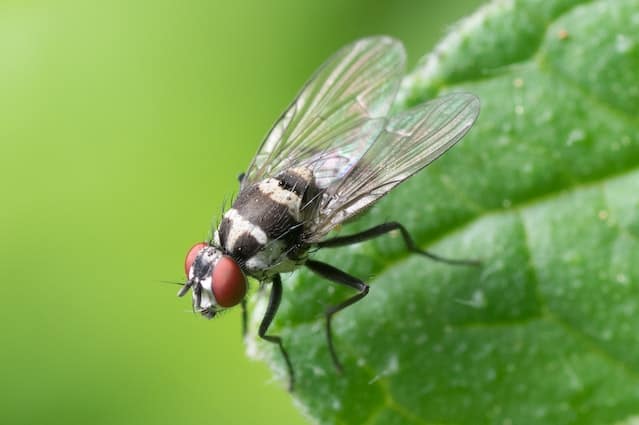
Some people also end up pouring dish soap all over there lawn in an effort to kill off grubs, a nasty little infestation that can eat your lawn so severely that it dries up, dies off, and turns into a dust bowl almost overnight.
You should know, however, that you don’t need to use dish soap – or really any other special chemicals whatsoever – to banish grubs from your lawn once and for all.
Believe it or not, even just spraying down your lawn with clean water – straight from the garden hose – is more than enough excess moisture on the ground to push those grubs up and make them easy pickings for removal (either by you or by the birds that love to eat them).
Skip the dish soap approach completely (you’ll end up killing your grass just the same way the grubs would have), use regular water to evict grubs from your lawn, and you’ll be a whole lot happier.
How to Fix Dish Soap Spots in Your Lawn
Let’s say that you have already spilled some dish soap on your lawn and you want to minimize the damage just as much as humanly possible.
Well, the first thing you’ll want to do is get your hands on your garden hose and then spray the impacted area (and only the impacted area) until you’ve really soaked it.
We are talking about soaking the ground until there’s almost standing water in that area. This works to dilute the dish soap until it’s almost completely ineffective at killing your grass.
The reason you want to spray directly down on the spot you spilled your dish soap and not more haphazardly is because you don’t want to run the risk of spreading dish soap around rather than diluting it – helping it kill off more of your grass instead of fixing the problem.
After that you’ll want to check on this spot of grass every couple of days to make sure that it isn’t browning and that it isn’t dying off. It might not be a bad idea to flooded with more water two days after the initial flooding, just to be sure that your grass is good to go.
If you do end up with brown and burnt spots you might want to consider carving out that plug of grass from your lawn completely, pulling out the dirt (roots and all), backfilling with new topsoil, and then overseeding with grass to rebuild that patch.
It’ll take a little while for you to see results (a couple of weeks, minimum) but you’ll have happy, healthy grass free of dish soap contaminants with this approach.
Does Dish Soap Contaminate Soil Forever?
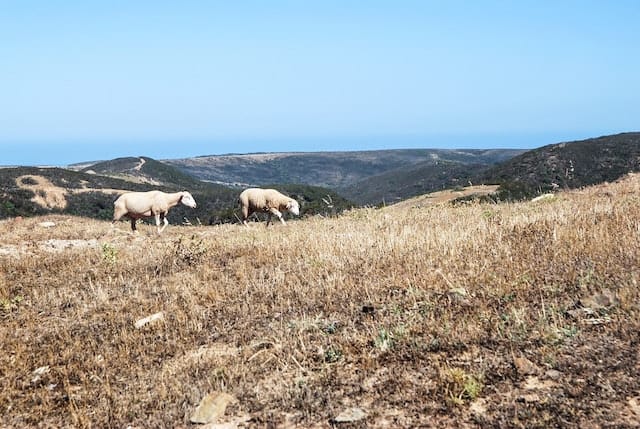
No, you don’t have to worry about a dish soap spill contaminating your soil forever.
The good news about these kinds of accidental contaminations is that they are very short-lived. Even if the dish soap is able to kill off your grass you can easily remove the impacted area (roots and soil included), replace with fresh dirt and new grass seed, and you’ll be back in action in no time.
Often, though, just soaking the impacted area really well is enough to dilute the dish soap enough so that you don’t have to worry about problems later down the line.
More on lawn care: Should You Water Lawn After Applying Fungicide
Closing Thoughts
Does dish soap kill grass and will accidental or intentional spills leaf patches of burnt grass all throughout your lawn? You bet it well!
Does that mean that your lawn is completely cooked if a little bit of dish soap ends up sprinkled across your backyard? Not at all!
Use the tips and tricks we included above – including flooding out the impacted area or growing new grass seed where the dead grass used to be – and you won’t have to worry about too much headache or hassle from a dish soap spill on your lawn ever again.
Frequently Asked Questions
Are all dish soaps dangerous to pour on grass?
Yes, all dish soaps – regardless of their specific formulation – are going to be dangerous to pour on grass (or any plants, for that matter). These products always include some sort of degreasing agent that destroys oil, and that means they are going to be highly toxic to plants like your grass.
Can dish soap be used to control grass growth (and weeds?)
Some people do in fact use a little bit of dish soap to better control grass or weed growth in their walkways, near their driveways, and on other spots of their lawn.
If you’re going to go down that road, though, use only just a little bit of dish soap, make sure you spread the dish soap on a sunny, warm day and don’t let the dish soap soak into parts of your lawn you’re hoping to keep fresh, green, and healthy.
Will grass ever grow again on dish soap spilled soil?
Grass can grow again on soap spilled soil. If you’re looking to speed the process up, though, you probably want to replace the dead grass, replace the roots, and replace that bit of topsoil (maybe the 1st inch or two) and then grow new grass from seed from there.

Hey, I’m Lisa and I’ve been an avid gardener for over 30 years. I love writing, talking and living in the garden! Feel free to connect with me on my socials below

